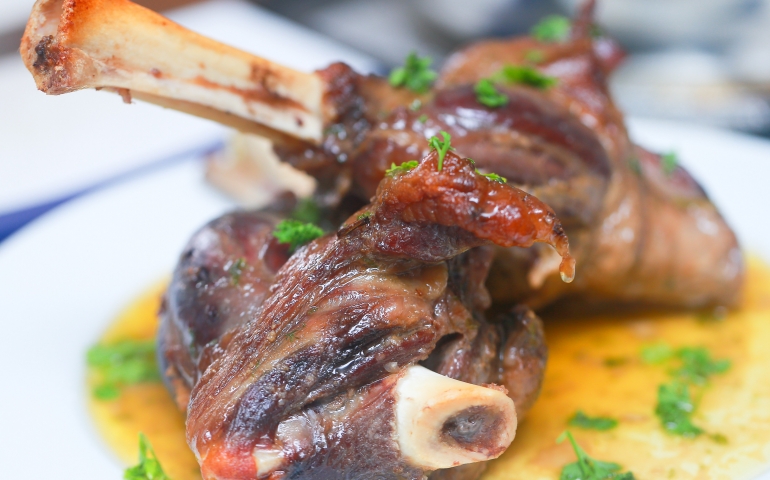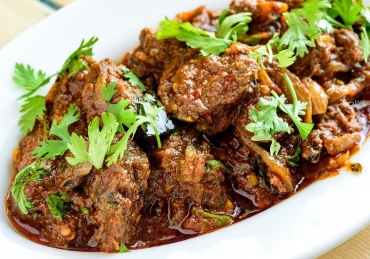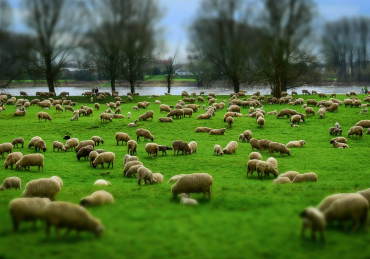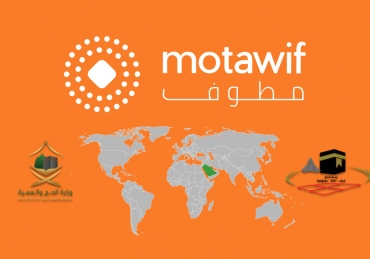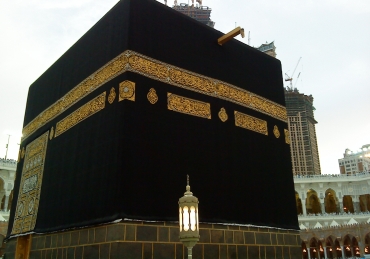Covid-19 – Global Qurbani Challenges
Question
In light of Covid-19 and the potential challenges in successfully delivering a global Qurbani programme within the required time-frame, the following is a summary of questions received on this subject from some NGOs:
- Is there any precedent in the books of fiqh for implementing Qurbani during a plague? How was this dealt with in the past?
- Our organisation may be unable to perform all the Qurbanis within the specified time-frame due to the following reasons: (a) Lack of access to livestock. (b) Lack of access to slaughter-men/slaughter facilities. (c) Lack of physical capability due to maintaining social distance, hygienic environment and lockdown measures. In this scenario, can we extend the Qurbani into the 4th day?
- Our obligation to our donors is that we perform their Qurbani and distribute the meat to deserving beneficiaries. There may be instances where we can perform the Qurbani within the three days of slaughter but are unable to distribute the meat safely to beneficiaries. In this scenario, can we stagger the slaughter of Qurbani animals after the three/four-day period, to ensure that the meat packs reach the poor and are not spoilt?
- What is our obligation to our donors who entrust us with their Qurbani? Can we continue to collect funds for Qurbani whilst making it clear to donors that there is no guarantee the Qurbani will be performed within the days of slaughter and that we may have to do their Qurbani after the three-day period?
Please outline the position of all four schools in this regard if possible.
(For Q&As, guidance & articles regarding Covid-19, click here)
بسم الله الرحمن الرحیم
Answer
May Allah Almighty reward you for your questions and reward all the Muslim NGOs for their noble endeavours.
Before addressing your questions, it is important to make two introductory points:
First, Qurbani is wājib (necessary) in the ḥānafī school upon bāligh (mature) rich (possessor of value of niṣāb beyond primary needs) Muslims who are muqīm (resident, non-travellers) similar to Ṣadaqat al-Fiṭr. In the other three schools, Qurbani is an emphasised Sunnah.
Second, Qurbani is a time specific sacrifice according to all four schools. Thus, it cannot be performed once the time passes. Therefore, every effort must be made to perform Qurbani within the specified time, otherwise the Qurbani will be invalid.
According to the majority of scholars including the ḥanafī, mālikī and ḥanbalī schools, the deadline is the sunset of 12 Dhū al-Ḥijjah. According to the shāfiʿī school and some ḥanbalī scholars, the deadline is the sunset of 13 Dhū al-Ḥijjah.
To ensure that the Qurbani is valid of all the donors who follow the various schools, you should set quotas for each location according to what you think can be successfully implemented by the sunset of 12 Dhū al-Ḥijjah. Beyond this, you should not risk the Qurbani of donors. If donors wish to donate general Ṣadaqah money for the slaughter and distribution of meat thereafter or before the days of Eid, this is a separate matter and should be encouraged. This, will however, not be termed Qurbani.
We recognise that setting quotas may not enable all your donors to partake in the Qurbani programme in the usual manner. This, however, is better than taking on a responsibility and thereafter not fulfilling this responsibility. To ensure you are able to fulfil the requirements of as many donors, you may wish to consider the following:
- Encourage donors to only perform their principal Qurbani with the NGO, and avoid performing any additional Nafl (supererogatory) Qurbani with the NGO this year. Instead, they can be encouraged to donate general Ṣadaqah to the NGO for general meat and food distribution if they wish to do so, and this can be distributed at any time. If this option is adopted, both categories must be clearly differentiated to the donor so there is no confusion and also within the internal systems of the NGO.
- Encourage donors to perform as many Qurbani of their family locally. Whilst it is encouraged that people perform Qurbani abroad to support the poor, families should not deprive themselves from the hospitality of Allah Almighty. The remaining principal Qurbanis, if any, can be performed via the NGO.
Your specific questions are now addressed:
(1) We have not come across any precedent for delivering a global Qurbani programme during a pandemic. Previously, Qurbanis were performed locally and such global programmes did not exist. Therefore, this challenge would not have arisen.
(2) As mentioned above, according to the majority of scholars, the deadline for Qurbani is the sunset of 12th Dhū al-Ḥijjah. Therefore, every effort must be made to ensure that the Qurbānīs are performed before this and quotas set accordingly.
If, however, for some unforeseeable reason, some Qurbanis are not sacrificed by the sunset of 12th Dhū al-Ḥijjah, then they must be sacrificed by the sunset of 13th Dhū al-Ḥijjah, so that they are valid at least according to the shāfiʿī school and some ḥanbalī scholars. However, as not all donors follow the shāfiʿī school, NGOs must plan to deliver all the Qurbanis before the sunset of 12th Dhū al-Ḥijjah.
In the event that the animal is slaughtered on the 13th and its meat distributed to the poor, this according to the majority of scholars will not be termed Qurbani. According to the mālikī and ḥanbalī schools, this will be a general Ṣadaqah. According to the ḥanafī school, the donor’s obligation will be fulfilled if a goat is slaughtered and its meat distributed to the poor. This is because if a Qurbani is missed under normal circumstances or otherwise, it is necessary to donate a goat (or equivalent animal), or its value or its meat to the poor, and the rich cannot eat from it. However, if the donors purchased a share in a large animal and the value of the share is less than the value of a goat, the donors will have to be contacted and requested to donate additional funds (to the value of the goat) if they wish to fulfil their obligation via the NGO.
(3) As mentioned above, there is no Qurbani after the sunset of 12/13 Dhū al-Ḥijjah. A primary feature of Qurbani is to sacrifice the animal within the specified days with the intention of Qurbani. Therefore, Qurbani orders should not be taken beyond your capacity to deliver within the three-day period. In addition, every effort must be made to preserve the meat, although the Qurbani will be fulfilled once the animal is sacrificed even if the meat is not distributed. The quotas should be set in a way that enables you to sacrifice the animals within the specified days, and also preserve and distribute the meat. The meat can be distributed anytime including after 12/13 Dhū al-Ḥijjah.
As mentioned above, if donors decide to give general Ṣadaqah for the distribution of meat and food before or after Eid, this is commendable. This should, however, be a separate project as highlighted above.
(4) The NGO’s obligation to donors is that the Qurbani is undertaken in the required time-frame. Otherwise, it is not Qurbani. It is therefore imperative that NGOs do not take orders beyond their capacity and encourage donors to perform their Qurbani locally or via another charity once the quotas are full. It will be incorrect to continue to collect funds for Qurbani whilst knowing that they cannot be performed in the required time-frame. Any quotas can be adjusted by the NGOs until the day of Eid taking into account any local changes.
As Qurbani is wājib (necessary) in the ḥanafī school, if for some reason the Qurbani is not performed before the sunset of 12th Dhū al-Ḥijjah, each person upon whom Qurbani is necessary will be required to donate a goat or its value or the meat to the poor. As mentioned above, sharing in a large animal will not suffice. In the other schools, Qurbani is Sunnah and if missed, one may choose to donate their animal/share or its value or the meat to the poor, and the donor will attain the reward of general Ṣadaqah.
Therefore, NGOs must not deliberately plan to delay slaughtering the animals beyond the sunset of 12th Dhū al-Ḥijjah. NGOs may, however, wish to consider informing donors in advance the following:
- Due to the pandemic, limited quotas have been set based on the capacity of the NGO to perform the Qurbanis within the three-day period.
- If, however, this is not possible due to unforeseeable circumstances and the NGO becomes aware of this before 12th Dhū al-Ḥijjah, the donors will be informed, enabling them to make Qurbani arrangements locally or via another NGO if they wish to do so. In this scenario, the NGO can issue a refund (by purchasing the donor’s animal from the donor) if the donor requests this.
- If the donor cannot or does not wish to make the alternative arrangement, or the NGO is unable to inform the donor in time, a goat or its value will be donated to the poor or a goat will be slaughtered and its meat distributed to the poor.
- If a donor had donated a share in a large animal and its value is less than the value of a goat, the donor will be contacted and requested to donate additional funds (to the value of the goat) if they wish to fulfil their obligation (according to ḥanafīs) via the NGO. These additional funds will be distributed to the poor.
We hope this answers your queries.
أقوال الحنفية
قال في الأصل (٥/٤١٢، طبعة قطر): والأضحى واجب على كل مقيم من أهل الأمصار وغيرهم إذا كان موسرا. وقال: قلت: أرأيت إن ذبح الرجل أضحيته بعد النحر بيوم هل يجزيه؟ قال: نعم. قلت: ولم؟ قال: لأن النحر عندنا ثلاثة أيام أفضلها أولها، بلغنا ذلك عن علي بن أبي طالب وعن ابن عباس، انتهى. وقال في كتاب الآثار (٧٨٦): أخبرنا أبو حنيفة عن حماد عن إبراهيم قال: الأضحى ثلاثة أيام، يوم النحر ويومان بعده. قال محمد: وبه نأخذ، وهو قول أبي حنيفة رحمه الله تعالى، انتهى۔
وقال القدوري في مختصره (ص ٢٠٨): وهي جائزة في ثلاثة أيام: يوم النحر ويومان بعده، انتهى. وقال السرخسي في المبسوط (١٢/٩): ثم يختص جواز الأداء بأيام النحر، وهي ثلاثة أيام عندنا، قال عليه الصلاة والسلام: أيام النحر ثلاثة أفضلها أولها. فإذا غربت الشمس من اليوم الثالث لم تجز التضحية بعد ذلك. وقال الشافعي رضي الله تعالى عنه: تجوز في اليوم الرابع، وهو آخر أيام التشريق، انتهى. وقال ابن مازة في المحيط البرهاني (٦/٨٨): وقت الأضحية ثلاثة أيام: اليوم العاشر والحادي عشر والثاني عشر من ذي الحجة، فإذا غربت الشمس من اليوم الثاني عشر لا تجوز الأضحية بعد ذلك، وأفضلها أولها. وقال: قال في الأجناس: أول وقت الأضحية لأهل السواد طلوع الفجر الثاني من يوم النحر، وفي أهل المصر عند فراغ الإمام من صلاة العيد يوم النحر، وآخر وقت الذبح يستوي فيه أهل السواد وأهل المصر، انتهى۔
وقال السرخسي (١٢/١٣): قال (والأضحية أحب إلي من التصدق بمثل ثمنها) والمراد في أيام النحر، لأن الواجب التقرب بإراقة الدم، ولا يحصل ذلك بالتصدق بالقيمة، ففي حق الموسر الذي يلزمه ذلك لا إشكال أنه لا يلزمه التصدق بقيمته، وهذا لأنه لا قيمة لإراقة الدم، وإقامة المتقوم مقام ما ليس بمتقوم لا تجوز، وإراقة الدم خالص حق الله تعالى، ولا وجه للتعليل فيما هو خالص حق الله تعالى، وأشرنا بهذا إلى الفرق بين هذا والزكاة وصدقة الفطر. وأما في حق الفقير التضحية أفضل، لما فيه من الجمع بين التقرب بإراقة الدم والتصدق، ولأنه متمكن من التقرب بالتصدق في سائر الأوقات، ولا يتمكن من التقرب بإراقة الدم إلا في هذه الأيام فكان أفضل، وأما بعد مضي أيام النحر فقد سقط معنى التقرب بإراقة الدم، لأنها لا تكون قربة إلا في مكان مخصوص وهو الحرم، وفي زمان مخصوص وهو أيام النحر، ولكن يلزمه التصدق بقيمة الأضحية إذا كان ممن تجب عليه الأضحية، لأن تقربه في أيام النحر كان باعتبار المالية، فيبقى بعد مضيها، والتقرب بالمال في غير أيام النحر يكون بالتصدق، ولأنه كان يتقرب بسببين إراقة الدم والتصدق باللحم، وقد عجز عن أحدهما وهو قادر على الآخر، فيأتي بما يقدر عليه، انتهى. وقال السمرقندي في التحفة (٣/٨٤): فإذا مضت هذه الأيام فقد فات الذبح في حق من لم يذبح حتى لا يجوز له أن يذبح، ثم إن كان أوجب شاة بعينها أو اشتراها ليضحي بها فمضت أيام النحر قبل أن يذبحها تصدق بها حية ولا ينقص منها شيئا من الشعر واللبن ولا يأكل من لحمها، لأنه انتقل الواجب من إراقة الدم إلى التصدق، وإن لم يوجب أو لم يشتر والرجل موسر وقد مضت أيام النحر فإن عليه أن يتصدق بقيمة الشاة التي تجوز في الأضحية لما قلنا، انتهى. وقال الحصكفي في الدر المختار (٦/٣٢١): فالمراد بالقيمة قيمة شاة تجزي فيها، انتهى۔
أقوال المالكية
قال الدسوقي في حاشية الشرح الكبير (٢/١١٨): (باب في الضحايا) (قوله: سن) أي على المشهور، وقيل إنها واجبة، انتهى۔
وروى مالك في الموطأ (١٧٧٤) عن نافع أن عبد الله بن عمر قال: الأضحى يومان بعد يوم الأضحى. وبلغه عن علي بن أبي طالب مثل ذلك. وقال الدردير في الشرح الكبير (٢/١٢٠): ويستمر وقتها (لآخر) اليوم (الثالث) من أيام النحر، انتهى۔
أقوال الشافعية
قال الإمام الشافعي في الأم (٢/٢٤٣): الضحايا سنة لا أحب تركها. وقال (٢/٢٤٨): والأضحية جائزة يوم النحر وأيام منى كلها لأنها أيام النسك، انتهى۔
وقال النووي في الروضة (٣/١٩٢): التضحية سنة مؤكدة وشعار ظاهر، ينبغي لمن قدر أن يحافظ عليها. قال (٣/٢٠٠): ويخرج وقت التضحية بغروب الشمس في اليوم الثالث من أيام التشريق، قال: فإن لم يضح حتى خرج الوقت فاتت. قال (٣/٢٠٩): لو أراد التطوع بالذبح وتفريق اللحم بعد أيام التشريق، لم يحصل له أضحية ولا ثوابها، لكن يحصل ثواب صدقة۔
أقوال الحنابلة
قال ابن قدامة في الكافي (١/٥٤٢): هي سنة مؤكدة. قال (١/٥٤٣): ويستحب لمن استناب أن يحضرها. قال (١/٥٤٤): وآخر وقتها آخر اليومين الأولين من أيام التشريق، لأن النبي صلى الله عليه وسلم نهى عن ادخار لحوم الأضاحي فوق ثلاث، متفق عليه. قال: فإن فات وقت الذبح، ذبح الواجب قضاء، لأنه قد وجب ذبحه، فلم يسقط بفوات وقته. وإن كان تطوعا فقد فاتته سنة الأضحية، انتهى۔
وقال المرداوي في الإنصاف (٤/٨٦): (إلى آخر يومين من أيام التشريق) هذا الصحيح من المذهب، وعليه جماهير الأصحاب، وقطع به كثير منهم وقال في الإيضاح: آخره آخر يوم من أيام التشريق، واختار ابن عبدوس في تذكرته أن آخره آخر اليوم الثالث من أيام التشريق، واختاره الشيخ تقي الدين، قاله في الاختيارات، وجزم به ابن رزين في نهايته، والظاهر أنه مراد صاحب الإيضاح، فإن كلامه محتمل۔
فائدة: جزم ابن حزم في المحلى (٦/٤٢) بأن آخر وقت الأضحية آخر ذي الحجة، كما هو قول أبي سلمة بن عبد الرحمن بن عوف وسليمان بن يسار، لكنه قول شاذ۔
Allah knows best
Yusuf Shabbir
8 Shawwāl 1441 / 31 May 2020
Approved by: Mufti Shabbir Ahmad and Mufti Muhammad Tahir

